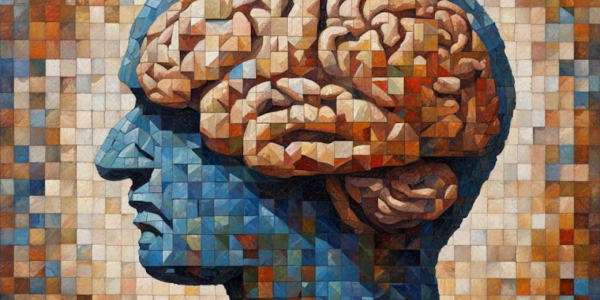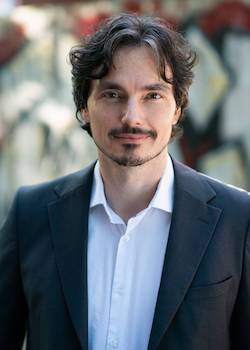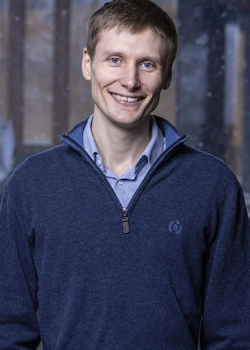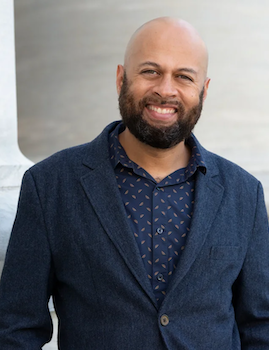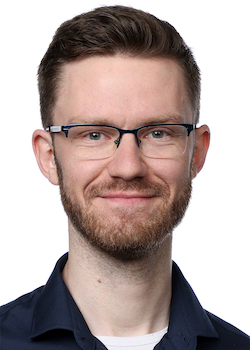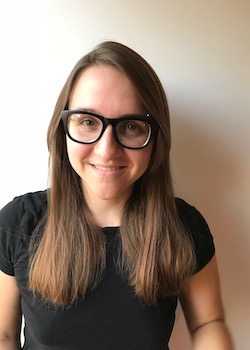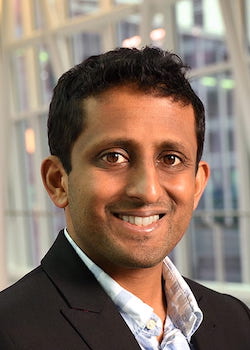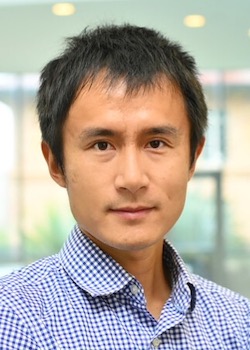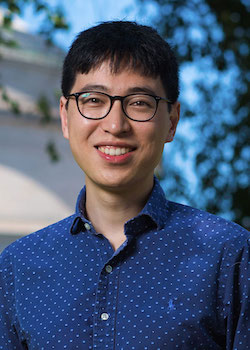NeuroAI Symposium
For videos and photos from this event, visit the Artificial Intelligence and Neuroscience page.
AI and Brains compute. Under the hood, AI and Brains have similarities (and differences); (i) many processing units (ii) are highly interconnected by weights (iii) that are learned from data (everything else about AI and Brains is different).
What can we learn from the similarities and differences that power computations in AI and Brains?
The Incubator for Transdisciplinary Futures at Washington University in St. Louis invites you to join an exciting lineup of leaders in the field to address these questions.
View our symposium program below. Speaker bios and abstracts can be found here.
Wednesday, May 15, 2024
| 8:30 a.m. |
Coffee |
|
| 8:55 a.m. | 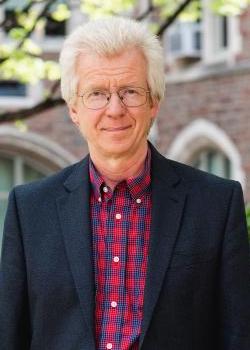 |
"Opening Remarks" Ralf Wessel, Professor of Physics |
| 9:00 a.m. |
"What’s the endgame of neuroAI?" Patrick Mineault, Senior ML Scientist |
|
| 9:30 a.m. |
"A deep learning model of mental rotation" Stéphane Deny, Assistant Professor, Neuroscience and Computer Science |
|
| 10:00 a.m. |
"Reverse engineering neural networks reveals the mechanisms underlying contextual processing" Niru Maheswaranathan, Research Scientist |
|
| 10:30 a.m. |
Break |
|
| 11:00 a.m. |
"Relating Population Activity to Single Neurons and Multiunit Activity via Deep Generative Networks" Carlos Ponce, Assistant Professor of Neurobiology |
|
| 11:30 a.m. |
"Model-Guided Next Generation Experiments" Martin Schrimpf, Assistant Professor |
|
| 12:00 p.m. |
Lunch (Women’s Building Formal Lounge) |
|
| 1:30 p.m. |
"The whispering cactus labyrinth: Divergent Creativity in Humans and Large Language Models" Karim Jerbi, Professor, Computational Neuroscience & Cognitive Neuroimaging |
|
| 2:00 p.m. |
"Modeling the relationship between visual attention and learning" Grace Lindsay, Assistant Professor of Psychology and Data Science |
|
| 2:30 p.m. |
"Using deep learning to uncover the dynamics of flexible pattern generation in the spinal cord" Chethan Pandarinath, Assistant Professor |
|
| 3:00 p.m. |
Break |
|
| 3:30 p.m. |
"Learning and Inference with Prior Knowledge" Xue-Xin Wei, Assistant Professor, Department of Neuroscience |
|
| 4:00 p.m. |
"Progress and challenges of language model powered agents" Guangyu Robert Yang, Computational Neuroscientist |
|
| 4:30 p.m. |
Poster Session (Physics Library, Compton Hall) |
|
| 6:30 p.m. |
Dinner (Kemper Art Museum) |
The symposium will be held in Crow Hall, Room 204 on Washington University's beautiful Danforth Campus.
This NeuroAI symposium is a satellite event, followed by the NEXTEN Computational Neuroscience Conference (May 16 & 17). The latter requires seperate registration.

